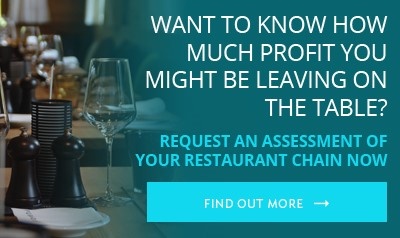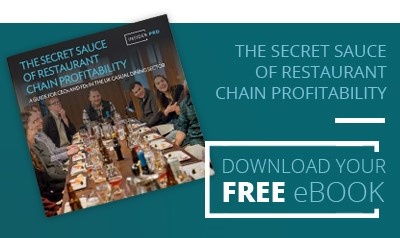Because all restaurant “products” are for human consumption, any maintenance issues that affect food storage and preparation can, at best, lead to wasted food and at worst, the possibility of illness and/or legal action.
These are unique features of the restaurant business. If you then overlay the potential costs of restaurant downtime due to property issues, it is easy to see that having robust maintenance contracts, procedures and trusted contractors are critical elements for the profitable running of restaurants.
So how can companies reduce maintenance costs without increasing risk?
This case study illustrates the approach InsiderPro took with one of our customers, reducing both risks and costs to the tune of £850,000 per year.
We recently worked with a chain of restaurants in the UK casual dining sector who wanted to reduce the cost of maintenance across all properties and equipment used by the group.
They thought we would be looking to negotiate new contracts.
Our approach and the impact that we had took them by surprise...
Their issues
They needed help to negotiate new contracts for maintenance services across their property portfolio and equipment.
Largely, they were happy with the suppliers, but wanted to cut costs and felt that an external negotiation would help the internal team maintain their good supplier relationships.
It’s not unusual for a client to think they have one problem, and for us to discover that, in fact, they should be looking to solve something bigger and more impactful.
Why Insider Pro?
We were selected because of our innovative approach.
After an initial brief audit (before being selected), we convinced them that cutting costs would give a marginal improvement and the real savings were to be made by adopting a completely different approach to facilities management.
The results
- Improved fix times minor problems can now be fixed quickly over the phone
- Reduced downtime by having the right contracts in place
- Simplified performance monitoring of all parties (to help future negotiations)
- Retained a good relationship with the maintenance contractor
- Staff pleased with the improved resolution time and the simplicity of the process
Added to that we negotiated a three year fixed price deal which saved the company £850,000 in the first year.
Our approach
When we work with companies, we look at everything that drives enterprise value, and that includes minimising costs associated with potential risks.
We saw three risks that we wanted to minimise:
- Downtime could mean anything from closing one area to closing the entire building, and the lost revenue could be huge. We wanted to minimise that risk to ensure maximum selling time in each location.
- Maintenance work was charged on a cost per hour but there was very little control over the number of hours requested or the time taken to do the work
- The whole process was very reliant on staff at each location to select the appropriate contractor and manage the work. This took them away from managing the operation, and reduced available selling time.
We set up a triage system manned by a third party to log calls and attempt to deal with the issue before calling on an engineer. We put a measurement system in place to ensure that each element of the process was monitored.
For every ticket raised the service desk asked the user three simple questions:
- Was the issue fixed over the phone?
- Was the issue triage'd correctly so that the right engineer turned up with the right tools?
- What was the time to resolution?
The service team could then monitor their triage process and the performance of the engineering contractors with a view to continuously improving the service.
What made our approach different?
We quickly mapped out their processes for handling maintenance and spotted ways of eliminating or reducing waste throughout the process. We then worked with the team to enable a simpler, more effective process
- It’s really hard to look at things differently when you are entrenched inside a business, but our experience of working with a range of companies, means we can apply our learning to different situations and present solutions with speed.
- We reduced business risk as well as cost
- Our goal as a business is to drive enterprise value for our customers. We think that risk is such an important factor that we’ve included it in our formula for calculating enterprise value.
- We didn’t simply suggest and negotiate a new contract. We ensured that staff in each location received the training needed to request, manage and monitor the quality of the service in a very simple way.
- We surprised the business with a cost saving in the first year way in excess of their goal.
- We’re determined to deliver real value through our innovative, creative, holistic approach to business issues.
How do you know you are operating at lowest cost now?
What costs could you take out of the business through negotiation?
What costs could you take out of the business through better processes?
Who can help you do both?
Challenge one of our restaurant consultants to find cash hidden in your business and improve profitability.
We offer a FREE strategic procurement audit, focused on the specific needs of your business. It gives you the opportunity to learn more about our approach, and both of us to uncover areas where we could drive real value for your business.



